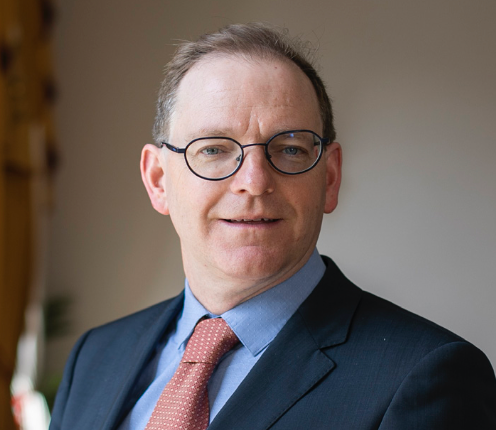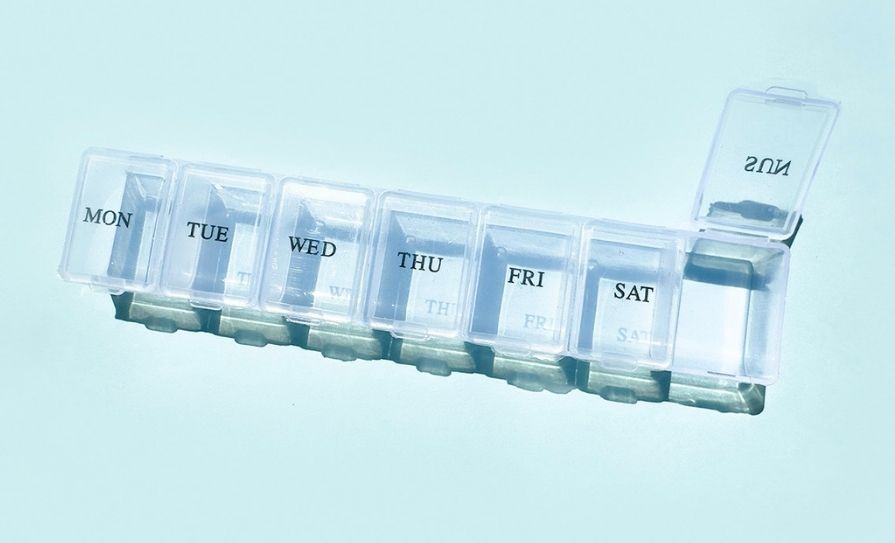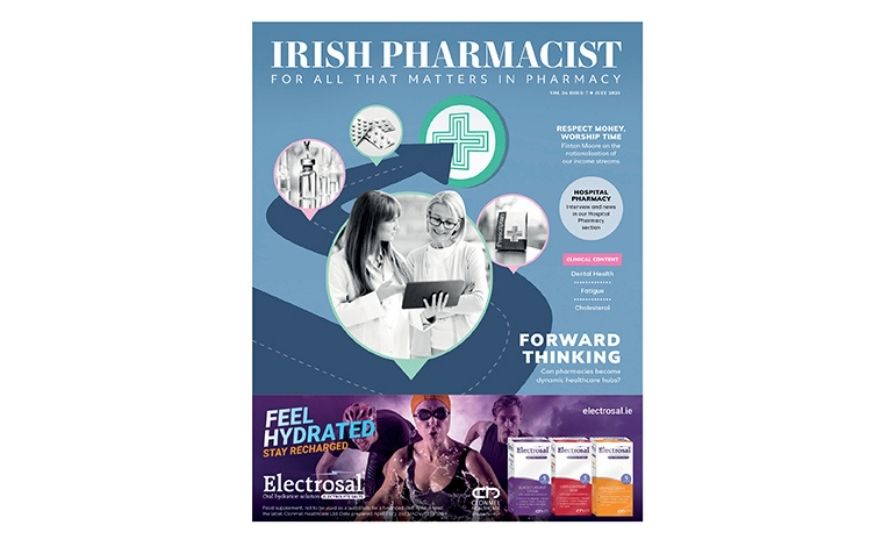President of the IPU Dermot Twomey MPSI speaks with Irish Pharmacist about the challenges and opportunities for the profession and the union, now and in the years to come

In common with other healthcare representatives, the Irish Pharmacy Union (IPU) must adapt to changing circumstances to stay effective in representing pharmacists. Staffing issues, the aftermath of Covid-19, and reimbursement for clinical services are, among others, vital issues that need to be addressed for individual Irish pharmacists and the profession as a whole. President of the IPU Mr Dermot Twomey spoke with Irish Pharmacist (IP) about these issues and more, as well as his current tenure at the head of the union.
On progress in his Presidency, he said: “It has been extremely busy, but we have gotten some media exposure,” he commented. “Particularly in the past three or four months, there is hardly a week goes by where we are not high on the news agenda. I think that’s testament to the work that community pharmacists and their teams around the country are doing, and it’s testament to the fact that we can offer solutions to the healthcare crisis as it currently stands.”
Mr Twomey also touched on a potential shift in awareness among the general population as to the value of their pharmacists. “What’s also interesting is the fact that we are having to work less hard in convincing the general public about our ability to provide extra services, because they know it now,” he said. “They know we are the most trusted profession based on an IPSOS MRBI poll from about a year ago, showing us ahead of nurses for the first time.
“So the public actually want us to do more,” he continued. “There have been a number of letters published in The Irish Times and other newspapers, as well as interviews that I and my colleagues have done on the radio, and there’s not a single interview that goes by without the public telling us that they want us to do more.”
Vaccinations
Mr Twomey likened the situation to that of a couple of years ago during the Covid vaccination programme, when at that time community pharmacies were not permitted to vaccinate. This was against the wishes of the public, Mr Twomey stressed. The momentum of public opinion became such that it was not possible to deny pharmacists this role any longer. “When that happened, we were able to show how effective we are at vaccinating in terms of numbers, accessibility, and public trust,” he told IP. “I would liken that to where we are now. For myself and my colleagues in the committees in the IPU, our role is to put a positive front out there, and to keep this [profile] in the media in the key areas where it matters.”
In this regard, Mr Twomey pointed to a number of upcoming conferences where he will be speaking on behalf of community pharmacy to make the point to decision-makers that pharmacy needs to have a further expanded role in healthcare provision, with the appropriate resources and reimbursement.
“Our role is to keep our agenda current and in the public and media eye, showing a presence at conferences where there are decision-makers and politicians to make these points to, and try to create a momentum to get these things over the line.” Some of these key issues include “fair fees to reimburse pharmacies for what they do; addressing staffing issues to ensure that we qualify enough community pharmacists in Ireland; to make it more accessible for pharmacists from other jurisdictions to work here, subject to meeting the appropriate criteria; the issue of contraception without prescription; and the establishment of a Chief Pharmaceutical Officer, combined with a strategy for pharmacy,” he said.
Serious shortage protocol
He touched on a briefing meeting held in September 2022 to inform politicians of these issues, as well as think-tanks that in combination, allowed the IPU to get its message across to some 114 politicians and key decision-makers. Among the themes Mr Twomey said he is keen to address is establishing a serious shortage protocol to allow pharmacists to therapeutically substitute products, and this is high on the union’s agenda, he said.
“Ultimately, the people who will be making these decisions will be senior civil servants and the Minister, whoever that may be at the time,” said Mr Twomey. “We have now built strong relationships with people in the Department [of Health], particularly since Covid. We have a really good professional team, which has been augmented recently with the recruitment of Susan O’Dwyer [Head of Governance and Pharmacy Services at the IPU].
“We have six pharmacists working now at various levels of the organisation, and those pharmacists are building relationships with their colleagues, and those relationships are starting to bear fruit,” he continued. “When you talk about the expansion of roles and responsibilities, such as the contraception scenario, we got what we consider to be a very fair fee for pharmacists providing contraception free of charge through the scheme. However, we would like it to go further — we would like to increase the accessibility of that service for people without the need to go get a prescription, as is the case in other jurisdictions, and we are not going to stop; we are going to stay on that.”
Inertia
Pharmacists have successfully integrated extra responsibilities into their existing roles and the benefits to public healthcare have been evident, including in terms of public perception. An evidence base exists to show the benefits to the public when pharmacists are given expended roles and treatment discretion, as in other jurisdictions, with Canada often cited as an example. So, with the data apparently clear-cut, Mr Twomey was asked to identify the inertia in the system that is preventing Irish pharmacists from using their full clinical acumen. “There is always a fear of change,” he told IP. “There is a fear of embracing new services and new ways of doing things. I believe we have a Minister who is keen to move on a change agenda and we just need to use the window of opportunity that we have to effect change so that ultimately, pharmacists can provide better services in their community while being reimbursed for those services at a fair level from the State. Community pharmacists need to feel empowered doing their job and go home with a spring in their step and a smile on their face.
“If we are going to stay bogged down in the mire of paperwork, using legacy systems that went out of date with the Ark or bringing in new systems that duplicate the work of the legacy systems, we are never going to make progress,” stated Mr Twomey. “We have to look to the future because ultimately, we have to encourage people to enter community pharmacy. We have to show them that it’s a good career, we have to resource the sector appropriately and we have to make sure that people will stay in community pharmacy.”
On the issue of the current levels of morale and happiness in the sector, he commented: “Our focus has to be on solutions, on moving away from bureaucracy of a yellow bag every month. We are duplicating a lot of work that is unnecessary, and that moves us away from the job that we want to do, which is doing our clinical work and helping our patients. There is much more we can do, such as contraception without prescription or the minor ailments scheme, which we have been pushing for a number of years, and now it’s back on the agenda again. That fits in well with Sláintecare — being able to provide the right service at the right place, with the right complexity and at the right time, rather than visiting an emergency department for things that can be done in a community pharmacy setting.”
Mr Twomey pointed out that the IPU has updated its website, improved its newsletter and expanded its responsibilities in terms of helping people with Fitness to Practise issues.
However, in common with other busy healthcare professionals in a patient-facing role, pharmacists can be vulnerable to burnout. Evidence exists to show that among physicians, the main cause of burnout is often not the job itself, but rather the systems and environments in which they work. Are pharmacists facing a similar vulnerability to burnout due to the systems in which they work?
‘Remove the blockages’
“Everyone’s individual situation is different,” he responded. “I am fortunate at the moment, in that I have two really good pharmacists working with me on a part-time basis, so I can still do my job as IPU President and work in my pharmacy too. Other people may not be as fortunate; they may need to do all the hours themselves, or they may not have the support staff. Each situation is different but ultimately, I think it’s up to us to try to remove the blockages and empower the pharmacist to do the work that the patients and public want, and be paid for that in a fair manner, and to reduce the bureaucracy around that.
“Of course, there have to be checks and balances from the State to make sure that everything is above board, but that can be done in a way that doesn’t block progress, and I think one of the key things is that we have to resource the sector well. We have talked about fair fees for the jobs that we do — pharmacists want to be able to take a lunch break, to be able to provide extra services, to take holidays, to take breaks and to feel refreshed. In order to do that, the sector has to be resourced, both from a financial and staffing perspective.”
Locum cover
Mr Twomey was also asked about the current cost to pharmacists of providing locum cover and his feelings on that matter. “Unfortunately, these are the vagaries of a market,” he told IP. “Locums are an important aspect of community pharmacy, because they allow people to take days off and cover certain areas. The issue is, we really do need more pharmacists in community pharmacy rather than as locums, because we are trying to build relationships with patients and provide continuity of care, which can be difficult if a locum is in for a day and gone the next day, for example. We do need locums, absolutely, but we also need community pharmacists to say, ‘I am going to work in X pharmacy a certain amount of hours per week’ in order to provide that clinical service.”
In common with many other organisations, the IPU had been forced to suspend its annual conferences, which featured guest national and international speakers and a wide variety of clinical topics. Mr Twomey was asked if this year, there are plans to recommence the conference in its full format. “This year, we are planning to have a hybrid-type AGM on Saturday 13 May in The Westin Hotel in Dublin. We are looking at having a clinical/President’s dinner/mini-conference in October of this year and there a couple of reasons why we haven’t picked that for May — all of the large hotels have been booked-out for quite some time in terms of weddings that were put on hold, for example [due to Covid],” he said.
“In addition, we have been flat-out in the past number of months,” he explained. “We have a new Secretary General who started in August and we have taken on people in the professional team, and hardly a day goes by where they are not doing interviews themselves. So, while we appreciate that the conference is really good in terms of CPD and the networking aspects, and that will come back.”
Vested interests
Mr Twomey concluded by saying: “As an organisation, I think the IPU has never been in a better state in terms of the relationships that we are building with officials, and in terms of how clear we are in our strategy,” he told IP. “Our goal is to try to deliver on that strategy. It won’t be easy to deliver on every single aspect of it, but pharmacy has never been held in higher esteem by the public. I believe the Minister understands that we have a huge role to play going forward, but to come back to your point on inertia, it’s about being agile and making bold decisions to follow and replicate what community pharmacy is doing in other countries. We’re not trying to reinvent the wheel — there are a lot of good things happening in Canada, Australia, the UK, and we need to pick up on that.
“There are a number of people who would like the status quo to remain — vested interests who don’t want things to change. However our role, and my role as President, gives us the opportunity to say we can do more and we will do more; we just need to be empowered to do it. We won’t stop getting that message across at every opportunity.” ?







